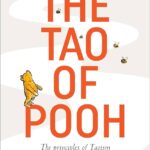Welcome to Thinkers Books, where we explore the rich world of literature and philosophy. Today, we dive into the profound wisdom encapsulated in the ‘Discourses’ by Epictetus, one of the most influential Stoic philosophers ever.
Epictetus, initially an enslaved person in the Roman Empire, rose above his circumstances to become a renowned philosopher. His teachings, collected in ‘Discourses,’ have inspired countless individuals seeking tranquillity and self-improvement. Epictetus’s philosophy is simple yet profound; he proposes that while we cannot control external events, we can control our reactions.
In ‘Discourses,’ Epictetus presents a roadmap to achieve serenity and self-sufficiency. He urges us to focus on what’s within our control and let go of what’s not. The book is divided into four parts, each exploring different aspects of Stoic philosophy, such as understanding our desires, dealing with adversity, and cultivating virtue.
Epictetus begins by challenging our perception of control. He suggests that we often confuse what’s within our control – our attitudes, beliefs, and responses, with what’s not: external events, other people’s actions, and societal norms. By understanding this distinction, we can attain tranquillity.
He then explores the concept of desire. According to Epictetus, we suffer because we desire what we cannot control. We can mitigate suffering by aligning our desires with reality and focusing on personal growth.
Finally, he discusses virtue, arguing that it should be our ultimate goal. According to Epictetus, goodness comes from understanding our role in the universe and fulfilling it with integrity and honour. It’s about living by nature and treating others with kindness and respect.
To summarise, here are the top 5 learning points from ‘Discourses’:
- Distinguish Between What’s Within Your Control and What’s Not: One core tenets of Stoicism is understanding the dichotomy of control. Epictetus advises focusing on aspects of life within our control, such as our attitudes, beliefs, and responses. External factors such as events, other people’s actions, and societal norms are beyond our control and should not cause worry or stress. This perspective allows us to navigate life with more serenity and less anxiety.
- Align Your Desires with Reality to Achieve Inner Peace and Contentment: According to Epictetus, much of our suffering stems from desiring what we cannot have or control. Suppose we adjust our desires to align with reality and focus on personal growth instead of seeking external validation or material possessions. In that case, we can achieve inner peace and contentment. This shift in mindset helps us to accept life as it is rather than how we wish it to be.
- Develop Virtue Through Constant Self-reflection, Discipline, and Commitment: In Epictetus’s philosophy, Virtue is the highest form of goodness. It involves understanding our role in the universe and fulfilling it with integrity and honour. To develop virtue, we must constantly self-reflect, exercise discipline, and remain committed to our moral and ethical principles. This lifelong journey towards virtue is vital to a fulfilling and meaningful life.
- Respond Thoughtfully Rather Than Reacting Impulsively: Epictetus emphasises the importance of thoughtful response over impulsive reaction. When confronted with challenging situations or complex individuals, we should respond with wisdom, patience, and understanding. Such thoughtful responses help maintain our inner peace and prevent external circumstances from disturbing our tranquillity.
- Understand and Fulfil Your Role in the Universe with Integrity and Honour: According to Epictetus, we have a specific role in the universe. Understanding and fulfilling this role with integrity and honour leads to a virtuous life. This involves living by nature, treating others with kindness and respect, and acting responsibly and ethically in all our endeavours.
Each point offers valuable insights into how we can lead a more serene and fulfilling life. By implementing these teachings, we can navigate life’s challenges with resilience, wisdom, and inner peace.
‘Discourses’ is a timeless gem. Its strength lies in its practicality and simplicity. It contributes significantly to Stoic philosophy by providing a roadmap to attain tranquillity and self-sufficiency. For me, ‘Discourses’ has served as a guide to accepting life and focusing my energies on things I can control. It’s more than just a book; it’s a guide to living a fulfilling life.
And as Epictetus said, ‘It’s not what happens to you, but how you react to it that matters.’ Let’s carry this wisdom and approach life with a resilient spirit.
We hope you found this summary enlightening and invite you to explore more book summaries from Thinkers Books. We believe in the power of knowledge and its capacity to enrich our lives. Enjoy your journey through the world of books, and remember, the journey of learning never ends!







